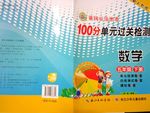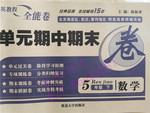题目内容
书面表达
There was once a farmer who had a fine olive orchard. He was very hardworking, and the farm always prospered(蒸蒸日上) under his care. But he knew that his three sons did not like the farm work, and were eager to reach the goal at a single leap.
When the farmer felt that his time had come to die, he called the three sons to him and said, “My sons, there is a pot of gold hidden in the olive orchard. Dig for it, if you wish it.” After the farmer was dead, the sons went to work to find the pot of gold.” Since they did not know where the hiding-place was, they agreed to begin in a line, at one end of the orchard, and to dig until one of them should find the money.
They dug until they had turned up the soil from one end of the orchard to the other, round the tree-roots and between them. But no pot of gold was to be found. It seemed as if someone must have stolen it, or as if the farmer had been wandering in his wits. The three sons were bitterly disappointed to have all their work for nothing. The next olive season, the olive trees in the orchard bore more fruit than they had ever given; when it was sold, it gave the sons a whole pot of gold.
And when they saw how much money had come from the orchard, they suddenly understood what the wise father had meant when he said, “There is gold hidden in the orchard. Dig for it, if you wish.”
写作内容:
1. 以30个词概括上文的主要内容。
2. 以约120个词就“Dig for it, if you wish it.”的话题谈谈你的想法,内容包括:
①你对这句话的理解。
②试举例说明。
③这个故事给你的启发。
 智慧课堂密卷100分单元过关检测系列答案
智慧课堂密卷100分单元过关检测系列答案 单元期中期末卷系列答案
单元期中期末卷系列答案
